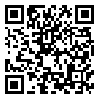Volume 6, Issue 3 (September 2024)
IEEPJ 2024, 6(3): 357-372 |
Back to browse issues page
Download citation:
BibTeX | RIS | EndNote | Medlars | ProCite | Reference Manager | RefWorks
Send citation to:



BibTeX | RIS | EndNote | Medlars | ProCite | Reference Manager | RefWorks
Send citation to:
Hojati N, Bagholi H, Barzegar M. (2024). Comparing the Effectiveness of Cognitive Behavioral Play Therapy and Transcranial Direct Current Stimulation on Depression in Children with Attention Deficit/Hyperactivity Disorder. IEEPJ. 6(3), 357-372.
URL: http://ieepj.hormozgan.ac.ir/article-1-644-en.html
URL: http://ieepj.hormozgan.ac.ir/article-1-644-en.html
1- Department of Psychology, Marvdasht Branch, Islamic Azad University, Marvdasht, Iran
2- Department of Psychology, Marvdasht Branch, Islamic Azad University, Marvdasht, Iran ,bhossein@gmail.com
2- Department of Psychology, Marvdasht Branch, Islamic Azad University, Marvdasht, Iran ,
Abstract: (1759 Views)
Objective: Children diagnosed with attention deficit/hyperactivity disorder are subject to a range of behavioral and emotional adversities. The objective of this investigation was to evaluate the relative efficacy of cognitive behavioral play therapy and transcranial direct current stimulation on alleviating depression in children with attention deficit/hyperactivity disorder.
Methods: The present study was designed as a semi-experimental investigation employing a pre-test-post-test methodology, inclusive of a follow-up phase and a control group. The statistical sample comprised children aged between 6 to 12 years who exhibited symptoms of attention deficit/hyperactivity disorder and sought services at the Nirvana Psychological Clinic in Shiraz; from this population, 45 participants were selected and randomly allocated into two experimental groups and one control group. Participants in the first experimental group received cognitive behavioral play therapy, while those in the second experimental group underwent transcranial direct current stimulation, administered over the course of 12 sessions. The control group did not receive any form of intervention. At both the commencement and conclusion of the treatment sessions, in addition to the follow-up period, all participants across the three groups completed the children's depression questionnaire.
Results: The collected data were subjected to analysis via repeated measures analysis of variance. The findings indicated that both cognitive behavioral play therapy and transcranial direct current stimulation interventions exerted a statistically significant impact on the reduction of depressive symptoms in children with attention deficit/hyperactivity disorder during the post-test and follow-up phases (P<0.001). No statistically significant difference was observed between the efficacy of the two interventions (P>0.05).
Conclusions: Consequently, it can be concluded that both cognitive behavioral play therapy and transcranial direct current stimulation possess the potential to ameliorate depression in children diagnosed with attention deficit/hyperactivity disorder.
Methods: The present study was designed as a semi-experimental investigation employing a pre-test-post-test methodology, inclusive of a follow-up phase and a control group. The statistical sample comprised children aged between 6 to 12 years who exhibited symptoms of attention deficit/hyperactivity disorder and sought services at the Nirvana Psychological Clinic in Shiraz; from this population, 45 participants were selected and randomly allocated into two experimental groups and one control group. Participants in the first experimental group received cognitive behavioral play therapy, while those in the second experimental group underwent transcranial direct current stimulation, administered over the course of 12 sessions. The control group did not receive any form of intervention. At both the commencement and conclusion of the treatment sessions, in addition to the follow-up period, all participants across the three groups completed the children's depression questionnaire.
Results: The collected data were subjected to analysis via repeated measures analysis of variance. The findings indicated that both cognitive behavioral play therapy and transcranial direct current stimulation interventions exerted a statistically significant impact on the reduction of depressive symptoms in children with attention deficit/hyperactivity disorder during the post-test and follow-up phases (P<0.001). No statistically significant difference was observed between the efficacy of the two interventions (P>0.05).
Conclusions: Consequently, it can be concluded that both cognitive behavioral play therapy and transcranial direct current stimulation possess the potential to ameliorate depression in children diagnosed with attention deficit/hyperactivity disorder.
Keywords: Cognitive behavioral play therapy, Transcranial direct current stimulation, Attention deficit/hyperactivity disorder, Depression
Type of Study: Original |
Subject:
Educational Psychology
Received: 2023/01/17 | Accepted: 2023/02/1 | Published: 2024/09/11
Received: 2023/01/17 | Accepted: 2023/02/1 | Published: 2024/09/11
Send email to the article author
| Rights and permissions | |
 |
This work is licensed under a Creative Commons Attribution-NonCommercial 4.0 International License. |






